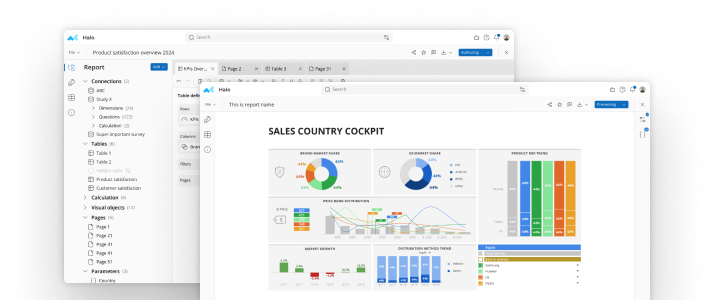Evolving into a customer-centric brand with democratized data
Crispin Beale discusses how data can drive customer centricity across your organization.

Crispin Beale discusses how data can drive customer centricity across your organization.

We sat down with Crispin Beale for his insight on how democratizing data is instrumental in evolving companies into data-driven, customer-centric brands. Crispin is the former CEO of Chime Insight & Engagement Group and former chairman of MRS (Market Research Society). Currently he serves as Senior Strategic Advisor to mTab and was recently named to Remesh's inaugural Top 50 Insights Leaders list.
Q: Crispin, when it comes to data intelligence, whether it’s insight on customers, products, products, competitors or the brand itself, why is democratization so important to the organization?
Beale: “Obviously, there are a tremendous number of shifting challenges in the market today, which is why gaining an clear understanding of customer behavioral trends and attitudinal shifts is more critical than ever. It’s not enough to synthesize your dispersed datasets to develop a comprehensive view of your customers, if you are not distributing this knowledge across the organization you’re basically tossing the insight into a desk drawer and ultimately hindering the teams across your organization.”
Q: What do you mean by hindering those teams?
Beale: “Well, first by holding back access to important insight you're essentially locking them out of intelligence that can advise their decisions, guide their strategies and drive their innovation. Beyond this though, without data democratization the company risks working off variable views of evidence that can be dramatically different and largely untrustworthy.”
Q: When it comes to democratization, how widely should the data be distributed across the company?
Beale: “It obviously varies from company to company, but the most innovative, data-driven, customer-centric companies we partner with tend to spread the access to their synthesized single-source data environment far and wide. We see a spectrum of teams using our visualized intelligence dashboards to teams that span Branding, Marketing, Forecasting Groups, Product Planning, Engineering, Sales, Product Quality, Consumer Insights, Market Intelligence, Strategy Groups, Finance and Economist Teams, to name a few. While these teams use different dimensions of data, the ability to provide them complete, consistent access to ensure they are all basing decisions, setting strategy and developing innovation off the same base of evidence is crucial. Beyond this the visualized stories are often advising the C-Suite as well.”
Q: While the benefits of democratizing your data are pretty clear, what are the big related risks that they should be focused on avoiding?
Beale: “It really comes down to having a data environment that is protected and insulated so that every team across the organization is running their variations of data dimensions and analytical outputs off the same core data foundation. I have personally witnessed nightmare scenarios including one where a leading global organization was, inadvertently, about to make major strategic decisions based on detailed analysis that was literally based on a sample size of three, which is terrifying. The system just lacked the necessary controls to avoid this type of pitfall. This was a major decision factor in my most recent career move; I wanted to be part of these innovations and solutions that helped leaders and decision-makers avoid these issues with single-source protected data environments that are built and synthesized from fragmented internal and external data sources. In times of uncertainty evidenced based solutions matter more than ever before; for many the mantra and measure of success has long been around the delivery of actionable insights – the reality though is that action, without evidence, is potentially worse than no action at all."
Q: What is the biggest hurdle that you see organizations have to clear in order to democratize their data so that every department can meet their own intelligence needs?
Beale: “A lot of this is rooted in giving the various diverse teams of an organization the tools they need to unlock the value from the data. It’s really an evolution from traditional data mining to evolved data storytelling. So, these groups need self-service solutions around guided analytics and intelligence cockpits to help them visualize the story that the data tells. It’s like using (AI) Artificial Intelligence to predict the insights that a user will want to consider but allowing each individual to build their own story from those insights to understand and solve the challenges they face. I am really excited about being on the forefront of this type of innovation to proliferate the adoption of data intelligence solutions across the organization so that data-driven evidence becomes the backbone of the decision-making on an organization-wide basis.”
Get more understanding on how to effectively manage and democratize your organization's customer data and intelligence.
Make smarter decisions faster with the world's #1 Insight Management System.
